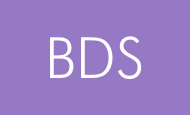Denmark Corporate Social Responsibility (CSR) Report
Click here for PDF version of this report.
Introduction
- Non-governmental organizations (NGOs) and Corporate Social Responsibility (CSR) groups are active in promoting boycott, divestment, and sanctions (BDS) campaigns in Denmark. These include Danske Bank’s divestment from Bank HaPoalim and a product labeling campaign.
- BDS actors include Ethix, a Swedish CSR company also linked to BDS activities in Sweden and Norway; Sustainalytics, a global CSR firm; DanWatch, which releases politicized reports under the guise of being an “independent media and research centre”; and Boykot Israel, an NGO that accuses Israel of “apartheid,” “ethnic cleansing,” “state terrorism,” and “collective punishment.”
Danske Bank divestment from Israeli firms
Based in Copenhagen, Danske Bank is the largest bank in Denmark with assets of more than 3.2 billion krone (approximately $500 million) in 2014. Danske Bank currently blacklists 33 firms for allegedly violating “internationally recognised norms and standards for human rights, arms, working conditions, the environment and anti-corruption.”
Five Israeli firms are blacklisted by Danske Bank: Africa Israel Investment, Bank HaPoalim, Denya Cebus, Elbit, and Aryt Industries. Africa Israel Investments and Elbit were added in 2010; Bank HaPoalim was added in January 2014. Bank HaPoalim has clarified that “Denmark’s Danske Bank has no investments, of any kind, with Bank Hapoalim.”
The following table shows the alleged violations of the blacklisted Israeli firms. Danske Bank’ does not provide any references or evidence for verification and further investigation of the claims.
| Firm | Alleged violation |
|---|---|
| Africa Israel Investments Ltd | "Construction activities in conflict with international humanitarian law." |
| Bank HaPoalim | "activities in conflict with international humanitarian law" |
| Danya Cebus | "construction activities in conflict with international humanitarian law." |
| Elbit | "supplying electronic equipment in conflict with human rights norms." |
| Aryt Industries Ltd. | "production of anti-personnel mines and cluster munitions, which is prohibited under international conventions." |
Blacklisting process
Ethix SRI Advisors, a group also linked to divestment activities in Norway and its native Sweden, undertakes the initial review of companies for Danske Bank’s responsible investment (RI) program. Ethix uses sources in “the UN, other inter-governmental organisations, national authorities, NGOs and the media about alleged corporate involvement in activities that violate international norms.” The Ethix review is then sent to Danske Bank’s RI Working Group, which has “overall responsibility for the screening process.” The RI Working Group includes Danske Bank and its associated asset management and pension and life insurance branches.
Danske Bank fails to give specific information about the firms’ alleged violations. Moreover, the extent to which the Bank attempts to involve the company in the process is unclear, despite the reputational and economic damage resulting from blacklist decision. Danske Bank vaguely describes its decision to exclude Israeli firms:
The Israeli settlements in the occupied Palestinian territories have been criticised by the UN, the EU and the Nordic governments. According to standard international law, the settlements are considered illegal and and [sic] hindrance to achieving peace.
Companies’ activities related to these settlements are therefore controversial and in some cases represent a violation of international conventions and guidelines. Whether there is a violation depends on an evaluation of the individual companies’ actual activities.
Ultimately Danske Bank and Ethix rely on distorted legal narratives that falsely accuse Israel of human rights violations and erroneously argue that conducting business with Israel amounts to furthering these alleged violations. As part of this anti-Israeli narrative, they promote the claim that it is illegal and unethical to conduct business with Jews over the 1949 armistice lines.
Courts in France, Canada, and the UK have explicitly found that there is no international law prohibiting business operations over the 1949 armistice lines. A court in France and the advertising board in the Netherlands also found that it was defamatory to claim a company selling goods or operating over armistice lines was acting “illegally” or in violation of international law.
Pension divestment
Pensionskassernes Administration (PKA) is a large Danish pension fund for social and health sector workers.
CSR firm Sustainalytics, which has 14 locations around the world, screens companies for PKA. PKA blacklists dozens of firms; four Israeli firms are blacklisted by PKA:
| Firm | Alleged Violation |
|---|---|
| Ashot | Cluster munitions |
| Magal Security Systems, Ltd. | Human Rights |
| Elbit Systems, Ltd. | Human Rights |
| Aryt Industries Ltd. | Cluster munitions |
Neither Sustainalytics nor PKA reveal their decision-making process, nor release reports related to blacklistings.
Another Danish pension fund, Pension Denmark, excludes firms for “violations of basic human and labor rights and environmental regulations committed by companies included in the Pension Denmark stock portfolio.” UK-based CSR firm Hermes EOS screens companies for Pension Denmark, which blacklists 14 firms, including Israeli firm Aryt for “Anti-personnel mines/cluster bombs.”
DanWatch
DanWatch describes itself as an “independent media and research centre,” with a mandate to “expose companies with trouble in the ethics department.” While DanWatch claims to be an “independent medium” to “investigate the accuracy of information from all sources,” it raises funds in part by selling research and contracting research projects. DanWatch also describes itself as “a watchdog,” but offers limited financial transparency and does not release detailed information regarding its own funding sources.
DanWatch was founded by DanChurchAid, Action Aid, and the Danish Consumer Council. Mads Klæstrup, the chairman of the Board of DanWatch, is Head of Communication at DanChurchAid. DanChurchAid partners with highly politicized NGOs with a BDS agenda, including Applied Research Institute Jerusalem (ARIJ), Ma’an Development Center, BADIL, Palestinian Center for Human Rights (PCHR), and Women’s Centre for Legal Aid and Counselling. Vagn Jelsøe, Vice Chairman of DanWatch, is the Deputy Director at the Danish Consumer Council, a member of the Danish Council for Corporate Responsibility.
The Danish Consumer Council is intended “to aid, support and inform the Danish government in matters on Danish companies’ social responsibility.” The President of the Council is selected by the Minister for Business and Growth, while the remaining council members are elected by affiliated organizations. Other government agencies are observers.
DanWatch supports BDS under the guise of “business ethics” and opposition to “indirect support” for illegal activities. These concepts are used in a highly subjective and vague manner, and the latter is not applied to any other international region or conflict.
In order to encourage divestment, in December 2012, DanWatch published a list of 19 firms that allegedly “support Israeli settlements on Palestinian land.” It also published information on how much pensions funds and investment firms had invested in those firms. DanWatch reported that Danish municipalities “have more than 800,000 euro placed in Fiat, Volvo, Caterpillar and CRH, who supply construction machinery and cement for the continued expansion of the settlements.”
In September 2014, DanWatch released a statement, “Danish trade with cosmetics from settlements: AHAVA,” implying that the Israeli cosmetic company AHAVA illegally extracts natural resources from the Dead Sea. This publication was reportedly a major catalyst that led several Danish retails stores to remove Ahava products from their displays.
“Business on Forbidden Land”
DanWatch’s project “Business on Forbidden Land” (2010) focused on Danish companies that allegedly conduct business in Israeli settlements and urged a boycott of Israeli goods produced in the West Bank. The project was supported by DanChurchAid and relied on research from several politicized NGOs, including Israeli Committee against House Demolitions (ICAHD), an NGO that routinely accuses Israel of “ethnic cleansing,” “genocide,” “collective punishment,” and “apartheid”. ICAHD explicitly advocates for the end of the state of Israel as the nation state of the Jewish people. Another source was Corporate Watch, a UK-based BDS organization that compares Israel to Apartheid South Africa and advocates “a total boycott of Israeli goods and the end of Israeli exports to Europe.”
DanWatch also worked closely with Who Profits on the report. Who Profits was founded “as a research project of the Coalition of Women for Peace (CWP) – “in response to the Palestinian call for boycott, divestment and sanctions (BDS) movement” against Israel. Who Profits initiates international BDS campaigns, targeting Israeli and foreign banks, security companies, civil infrastructure facilities, and private companies. In line with the purpose of DanWatch’s report, Who Profits also identifies companies for other BDS activists to target.
“Business on Forbidden Land” contains many problematic claims:
- Accusations of Israel “confiscat[ing] Palestinian land and divid[ing] the West Bank into so-called Bantustans, geographically separate territories.”
- The inflammatory use of the term “Bantustan” invokes the slur of “apartheid” and is a manifestation of the 1975 UN “Zionism is racism” resolution. The goal is to generate international boycotts that were implemented against apartheid South Africa and condemn Israel as a pariah state.
- Human Rights Watch’s allegations of “great difference in quantity of water per capita, as settlements and Palestinian communities have access to, despite the fact that they live side by side.”
- Human Rights Watch’s claim is a blatant distortion of the water supply system in the West Bank. Water has become a destructive weapon in the hands of political advocacy NGOs, which use allegations regarding water rights and availability as part of their delegitimization and anti-normalization campaigns against Israel. NGOs present a distorted narrative of the water issue, which ignores negotiated agreements between Israel and the Palestinians that determine water arrangements, internal Palestinian dynamics, and other complexities – in order to falsely accuse Israel of violating international law relating to water rights.
- In reality, Israel’s supply of water to the Palestinians is “far beyond its [Israel’s] obligation in the Water Agreement” (slide 8). The Palestinian Water Authority is responsible for supplying water to Palestinian communities. Israeli water supply to the settlements is part of Israel’s allocation of water, and does not affect the supply to the Palestinians in any way. Additionally, Israel supplies less water to Israeli citizens in the West Bank than what is stipulated by the Oslo accords, and transfers the remaining quota to the Palestinians.
While it is unclear how much influence DanWatch’s campaigns have had, in mid-2012, Denmark launched an optional settlement produce labeling plan. Villy Søvndal, Danish Foreign Minister said, “This is a step that clearly shows consumers that the products are produced under conditions that not only the Danish government, but also European governments, do not approve of. It will then be up to consumers whether they choose to buy the products or not.”
Boykot Israel
The NGO Boykot Israel is the Danish branch of the BDS Movement. Boykot Israel calls for the end of the “occupation,” demolishing of the “Apartheid Wall,” “ethnic cleansing,” and the Palestinian right of return. They accuse Israel of “state terrorism” and “collective punishment” against Palestinians. Boykot Israel’s funding sources are not transparent.
Boykot Israel arranges events, protests against Israel, and affixes “Boykot Israel” stickers on Israeli products at Danish supermarkets (a move that is potentially legally actionable), including produce and SodaStream products.
For a demonstration relating to the 2014 Gaza conflict, Boykot Israel claimed that
Israel’s massacre of hundreds of Palestinians, including a majority of civilians are part of, as the Israeli historian Ilan Pappe calls it, “the ethnic cleansing of Palestine.” The methods are so brutal that a Palestinian teenager, Mohammed Abu Khadei [sic] was burned to death in Jerusalem.
This description totally distorts the circumstances of the horrific murder of Mohammed Abu Khadeir, a criminal act that was immediately condemned throughout Israel and by the Israeli government. The perpetrators were quickly apprehended by Israeli authorities and are on trial for murder. Boykot Israel’s attempts to portray this as an official Israeli action are defamatory and immoral.


